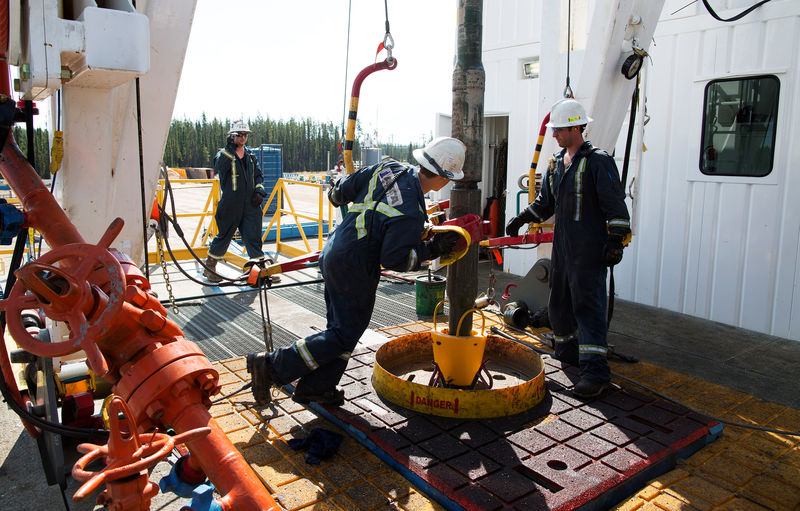By Peter Nurse
Investing.com -- Oil prices rose Monday, bouncing after the previous week’s sharp losses, helped by the improved risk sentiment, but concerns over the demand outlook remain as global economic growth slows.
By 09:40 ET (13:40 GMT), U.S. crude futures traded 1.7% higher at $86.11 a barrel, while the Brent contract rose 1.7% to $93.17.
The new U.K. Chancellor of the Exchequer Jeremy Hunt announced earlier Monday the abandonment of nearly all of the tax and spending measures proposed by his ill-fated predecessor Kwasi Kwarteng.
This helped to reverse a recent rise in government bond yields, boosting market confidence to the benefit of so-called risky assets, including oil.
Helping the tone Monday was also the support of a number of OPEC+ members for the recent production cut of over 2 million barrels per day, despite increased opposition from the United States.
Several members of the Organization of Petroleum Exporting Countries and its allies, including Saudi Arabia, the United Arab Emirates, Iraq, and Kuwait expressed support for the production cut over the weekend, expressing a joint need to stabilize oil prices amid headwinds from slowing economic growth.
Saudi Arabia's defence minister said the decision by OPEC+ to cut oil output was taken unanimously and for purely economic reasons.
Prince Khalid bin Salman also said he was "astonished" by accusations that the Kingdom was "standing with Russia in its war with Ukraine."
However, these gains, which may also include an element of bargain hunting, look tentative, especially after both benchmarks fell over 6% last week.
“The market is concerned over the demand outlook given a deteriorating macro outlook,” said analysts at ING, in a note. “Last week’s higher-than-expected U.S. CPI only clouds the outlook further with expectations that the Federal Reserve will need to be more aggressive when it comes to hiking rates.”
The economic outlook in China, the world’s largest crude importer, also looks cloudy, especially after the country abruptly postponed earlier Monday, without explanation, the publication of third-quarter economic growth figures a day before they were due to be released.
President Xi Jinping, in his opening speech at the Communist Party convention, reaffirmed his commitment to the Covid-zero policy that has caused repeated local shutdowns of cities and provinces across the world’s second-largest economy this year.
Elsewhere, CFTC data showed another modest uptick in net speculative long positions, albeit they remain near their lowest in six years, an illustration of the loss of liquidity from a market that has shown extreme volatility this year as financial conditions have tightened.
“This increase was predominantly driven by fresh longs,” added ING. “The move likely reflects the market’s initial reaction to the OPEC+ meeting. However, given the more recent weakness in the market, the current net long is likely somewhat smaller.”
